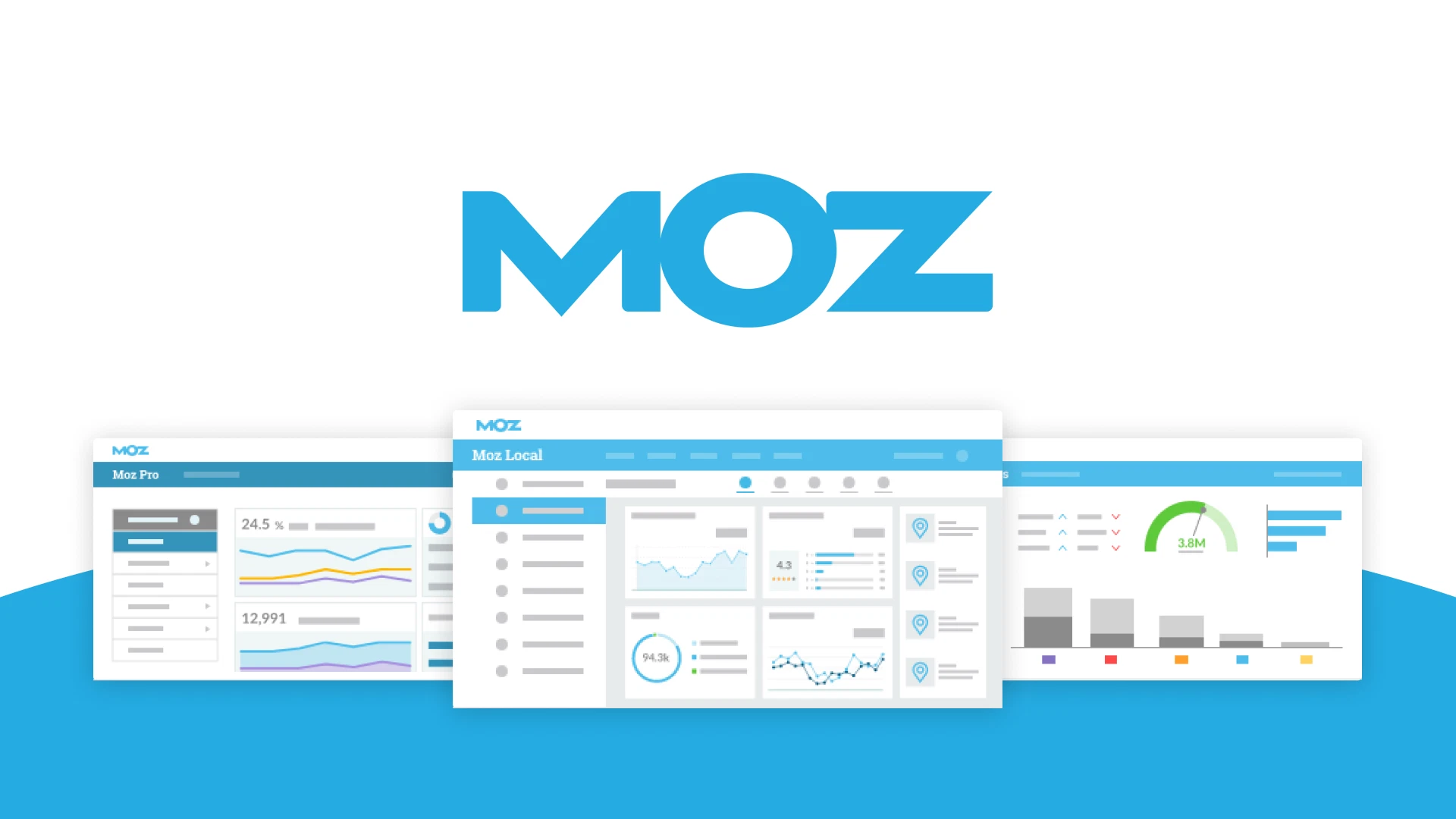Every business, blogger, and content creator dreams of how to rank website on Google first page. It is no surprise because it is the most valuable digital real estate in the world. When someone searches for a product, service, or piece of information, their first instinct is to click on the results they see right away, and those overwhelmingly come from page one. Very few people move beyond the top Google results, and even fewer go beyond the second or third pages.
Table of Contents
ToggleHow to rank website on Google first page
If you are not concerned about how to rank website on Google first page, you are essentially invisible to the majority of internet users. Ranking on the top results requires a combination of strategy, patience, and effort. It involves understanding how Google evaluates content, how search engine optimization (SEO) works, and how user behavior influences ranking signals. To begin with, it is essential to understand what the algorithm is trying to achieve.
For the search engine, the goal behind how to rank website on Google first page should be providing users with the most relevant, reliable, and useful results for their queries. Its algorithms constantly evolve to filter out low-quality content and prioritize websites that provide real value. This means that if you want to rank on the first page, you have to align your website with Google’s mission. Instead of thinking of SEO as trying to trick the search engine, it is more helpful to think of it as a way of building a website that genuinely deserves to be ranked highly.
One of the foundational aspects of how to rank website on Google first page is keyword research. Keywords are the phrases that people type into the search bar. Without targeting the right terms, your website may produce great content that nobody is searching for. Successful websites identify the exact phrases that their target audience is using and then create content that answers those queries comprehensively. By identifying these exact terms and optimizing your pages for them, you increase the chances of appearing on the first page.
In how to rank website on Google first page, keyword research involves tools like Google Keyword Planner, SEMrush, Ahrefs, or even simply using the autocomplete suggestions in the search bar to discover what people are actively looking for. However, keywords research alone is not enough. Once you know which phrases to target, the next step is creating high-quality content around them, which remains the cornerstone of SEO. Google rewards pieces that are original, informative, and well-structured.
If your content is shallow, outdated, or poorly written, it will be extremely difficult to achieve how to rank website on Google first page. On the other hand, in-depth content that genuinely helps users tends to rank higher. The length of content can also play a role, though it is not about writing thousands of words for the sake of it. The goal is to cover the topic thoroughly enough that a user does not need to look elsewhere. For instance, if someone searches for a marketing topic, a short post with only a few steps will probably not rank as highly as a detailed guide covering equipment, software, hosting, marketing, and monetization.
Another critical factor in how to rank website on Google first page is on-page optimization. This refers to all the elements within your website that can be optimized to make it easier for the search engine to understand what your content is about. Title tags, meta descriptions, headers, and URLs all play an important role. A page that is optimized for a specific keyword will typically include that keyword in the title, in at least one header, in the first paragraph, and throughout the content in a natural way. The URL should also be clean and descriptive rather than filled with random characters.
Meta descriptions, while not a direct factor in how to rank website on Google first page, can influence click-through rates, which indirectly impact rankings. Internal linking is another key aspect of on-page SEO. By linking your pages together strategically, you help Google crawl your site more effectively and signal which pages are most important. Equally important is technical SEO, which deals with how well your website is structured and how easily search engines can access it. A site that is slow, full of broken links, or not mobile-friendly will struggle to rank.
Page speed has become a major ranking factor in how to rank website on Google first page, particularly with the Core Web Vitals update, which measures things like loading speed, interactivity, and visual stability. If your website takes too long to load, users will leave, and Google will take notice. Mobile-friendliness is also critical because more searches are performed on mobile devices than desktops. A responsive design that adapts to different screen sizes is now essential, not optional. Additionally, having an SSL certificate for HTTPS is a basic requirement, as Google favors secure websites.
Beyond the technical aspects of how to rank website on Google first page, backlinks remain one of the most powerful ranking signals. These are links from other websites pointing to yours, and they act as votes of confidence. The more high-quality websites that link to your site, the more authority Google assigns to you. However, not all backlinks are created equal. Links from authoritative, relevant websites carry far more weight than links from spammy or unrelated sources.
Building backlinks takes time and effort but are still important in how to rank website on Google first page. Strategies include guest posting, creating shareable content, digital PR campaigns, and building relationships with influencers in your niche. For example, if you publish an original research study or an in-depth guide, other websites may naturally link to it as a reference. Link-building should always prioritize quality over quantity, as Google’s algorithms are highly sophisticated at detecting manipulative practices like link farms or paid links.
User experience also plays a major role in how to rank website on Google first page. These search engine uses signals like time on page, bounce as well as click-through rates to determine how users interact with your site. If people click on your link but immediately leave because your site looks untrustworthy or confusing, your rankings will suffer. A clean, intuitive design that loads quickly and provides easy navigation helps retain visitors. Content should be structured in a way that is easy to read, with short paragraphs, subheadings, and visuals where appropriate.
Accessibility is also becoming increasingly important in how to rank website on Google first page, as websites should be usable by people with disabilities. Another factor that cannot be overlooked is the freshness of content. Google tends to favor up-to-date information, especially for topics that change rapidly, such as technology, finance, or health. If your content is outdated, it may slip in rankings even if it was once on the first page. Regularly updating your content to reflect the latest information and trends signals to Google that your website is active and reliable.
Local SEO is another strategy for those who want to learn how to rank website on Google first page. If you are a business that operates in a particular area, optimizing for such search is essential. This involves setting up and optimizing a Google Business Profile, getting reviews, and ensuring that your name, address, and phone number are consistent across directories. Local citations and backlinks from regional websites can also boost your local ranking.
Social signals, while not a direct ranking factor, can still influence SEO. Content that is widely shared can generate traffic, brand awareness, and potentially backlinks. The more people engage with your content, the more likely it is that other websites will reference it, indirectly boosting your rankings. Analytics and monitoring are the backbone of a successful SEO campaign. Ranking on the first page is not a one-time effort but an ongoing process. Using tools like Google Analytics and Search Console allows you to track performance, see which keywords are driving traffic, and identify areas for improvement.
Regularly reviewing your SEO helps you adapt to changes in algorithms and user behavior. Patience is crucial if you are after how to rank website on Google first page, as it is not an overnight strategy. Depending on the competitiveness of your keywords, it may take several months before you see significant results. This can be frustrating, but it is important to stay consistent. Many people give up too soon, only to see competitors overtake them because they were more persistent.
Another aspect to consider is the use of multimedia. Content that incorporates images, videos, and infographics tends to perform better. Not only does it makes content more engaging for users, but it also increases the likelihood of earning backlinks. Videos can be particularly powerful, as Google often displays video results on the first page. Optimizing such format with proper titles, descriptions, and transcripts can help it rank both in Google search and on YouTube, which is the second-largest search engine.
Schema markup, also known as structured data, is another advanced tactic in how to rank website on Google first page. By adding it to your site, you help Google better understand your content and potentially display rich snippets, such as star ratings, event details, or product information. These make your listing stand out in the search results, which can increase click-through rates. Competition analysis is also a valuable part of the process. By studying the websites that currently rank on the first page for your target keywords, you can identify what they are doing right.
Look at their content length, backlink profile, page structure, and overall authority. This does not mean copying them but rather finding opportunities to create something even better. This concept is often called the skyscraper technique, which is taking an existing piece of high-performing content and improving on it by making it more comprehensive, up-to-date, and user-friendly. Voice search optimization is another emerging factor. With the rise of voice-activated assistants like Siri, Alexa, and Google Assistant, more people are using conversational queries.
These queries often differ from typed searches, as they are longer and more natural. Optimizing for voice search means targeting long-tail keywords and providing clear, concise answers to common questions. This ties into the concept of featured snippets, which are the boxed answers that appear at the top of some Google searches. If your content is structured in a way that directly answers a question, you have a chance of achieving how to rank website on Google first page.
In addition, brand authority plays a significant role in how to rank website on Google first page, as the search engine increasingly looks at signals of expertise, authoritativeness, and trustworthiness. Websites that demonstrate effective subject matter expertise and credibility tend to rank higher, particularly in sensitive niches like health, finance, or law. Building authority can involve showcasing author credentials, citing reputable sources, and maintaining a strong brand presence across the web.
It is important to understand that SEO is a constantly evolving field. What works today may not work tomorrow. Google updates its algorithms regularly, and each update can shift rankings dramatically. The best way to future-proof your website is to focus on providing genuine value to users, staying up-to-date with SEO best practices, and maintaining a long-term mindset. How to rank website on Google first page is a multifaceted process that requires careful planning, consistent effort, and adaptability.
How to rank website on Google first page starts with thorough keyword research and extends into creating high-quality content, optimizing on-page and technical elements, building authoritative backlinks, and ensuring a positive user experience. It involves both short-term tactics like improving site speed and long-term strategies like building brand authority. It demands ongoing monitoring and the willingness to adapt to algorithm changes. While it may seem daunting, the reward of being on the first page of Google is huge, offering increased visibility, traffic, and ultimately conversions.
Success comes to those who treat SEO not as a quick fix but as a long-term investment in building a trustworthy and valuable online presence. One of the most overlooked aspects of how to rank website on Google first page is having a clear content strategy. Many website owners produce randomly, hoping that something will eventually rank. While luck can sometimes lead to small wins, consistent success on the first page requires planning. A content strategy starts with understanding your audience. Who are they? What problems are they trying to solve? What kind of content do they prefer? Short blog posts, long guides, videos, podcasts, or interactive tools?
By understanding your target audience, you can create content that not only achieves how to rank website on Google first page but also resonates with it. For example, if your audience is made up of busy professionals, you might focus on quick, actionable guides. If they are hobbyists who enjoy deep dives into technical subjects, long-form, detailed tutorials might be more appropriate. Another component of a successful content strategy is creating topical authority. Google tends to reward websites that cover a topic comprehensively rather than superficially.
If you run a fitness website, writing just one post about weight loss will not establish you as an authority. Instead, you need multiple ones covering related topics such as nutrition, workout routines, mental health, and common myths. Over time, this cluster of related content signals to Google that your website is a trusted source in that niche. This strategy, often referred to as a content hub or topic cluster approach, involves creating pillar pages that serve as comprehensive overviews and then linking them to supporting content pieces that cover subtopics in more detail. So, consistency is critical in how to rank website on Google first page.
How to rank website on Google first page favors websites that are regularly updated with new content. This does not mean posting daily if that compromises quality, but it means establishing a realistic publishing schedule and sticking to it. Whether it is weekly, biweekly, or monthly, consistency shows Google that your site is active and reliable. Long-term maintenance of your SEO efforts is just as important as the initial optimization. Many websites see a surge of traffic after implementing good practices, only to lose it later because they fail to maintain their SEO.
This can happen if you do not update your content, fix broken links, or adapt to new algorithm changes. Conducting regular SEO audits helps identify issues before they become serious. An audit might reveal that some pages are no longer mobile-friendly, that site speed has slowed down, or that backlinks have been lost. Addressing these issues quickly helps in how to rank website on Google first page. Common mistakes also prevent websites from reaching the first page. One mistake is keyword stuffing, which means overloading a page with keywords in an unnatural way.
This used to work in the early days of how to rank website on Google first page, but today it is more likely to trigger penalties. Another mistake is relying on duplicate content. If the search engine finds that your content is identical or too similar to content already published elsewhere, it will prioritize the original source. Thin content, or craft that provides little value, is another trap. Publishing hundreds of short, low-quality posts will not help you rank. It is better to publish fewer but higher-quality pieces.
Ignoring user intent is another costly mistake in the process of how to rank website on Google first page. Even if you are great in a keyword, if your content does not satisfy the intention behind it, users will leave, and your rankings will drop. Looking ahead, the future of ranking on Google’s first page will likely involve even greater emphasis on artificial intelligence, user behavior, and personalization. Google’s algorithms are already powered by machine learning, and they are getting better at understanding context, semantics, and intent. This means that optimizing purely for keywords will become less effective over time.
Instead, the focus will shift toward creating content that genuinely answers questions in a natural and conversational way. With the rise of AI-driven search features, including Google’s Search Generative Experience (SGE), users may start receiving summarized answers directly in the search results. While this could reduce clicks to websites, it also means that only the most authoritative and well-structured content will be used as sources for those summaries. To achieve how to rank website on Google first page, websites should focus on building trust, authority, and unique insights that AI can recognize and feature.
Personalization will also play a larger role in how to rank website on Google first page. The search engine is increasingly tailoring results based on a user’s location, device, history, and preferences. This means two people searching for the same query might see different results. While you cannot control personalization directly, you can increase your chances of appearing in personalized results by ensuring your site is technically sound, contextually relevant, and locally optimized when appropriate.
Voice and visual search will continue to grow as well. Optimizing for the first means structuring content to provide concise, conversational answers. For the second, such as Google Lens, it means optimizing images with descriptive alt text and ensuring that visual content is high quality and relevant. Another future trend in how to rank website on Google first page is the growing importance of experience signals. Google is measuring not just whether a page is relevant but if it provides a positive overall experience. Metrics such as how long users stay on a page, how far they scroll, and whether they engage with the content will become even more significant.
This places an even greater emphasis on creating content that is engaging, visually appealing, and easy to navigate. It is also worth mentioning the importance of diversification in how to rank website on Google first page. While this should be a priority, relying solely on search traffic is risky. Algorithm updates can cause sudden drops in rankings. To mitigate this risk, it is wise to diversify sources of visitors by building an email list, engaging on social media, and exploring other search platforms like YouTube. A strong brand that people search for by name will always be more resilient than a site that depends solely on ranking for generic keywords.
Ultimately, how to rank website on Google first page requires a holistic approach. It is not about mastering one single tactic but bringing together all the different pieces, including keyword research, content creation, technical optimization, backlinks, user experience, and long-term maintenance, into a cohesive strategy. It is about understanding that SEO is both an art and a science, requiring creativity to produce compelling content and technical precision to ensure it is accessible and visible.
When all of these elements come together, the result is a website that not only achieves how to rank website on Google first page but also delivers real value to its visitors, and that is the true essence of SEO, which is not simply chasing rankings, but building a digital presence that people trust, enjoy, and return to constantly.
At A Glance
What is the most important factor for ranking on Google’s first page?
High-quality, relevant content is the foundation. Google prioritizes pages that provide comprehensive, useful answers to search queries. This includes clear structure, natural keyword use, and regular updates. Without valuable content, even strong technical SEO and backlinks won’t sustain rankings.
How long does it take to rank on Google’s first page?
It depends on competition, keyword difficulty, and your website’s authority. In most cases, noticeable results take 3–6 months, though highly competitive niches may require a year or more of consistent effort.
Do backlinks still matter for SEO?
Yes, backlinks remain a strong ranking factor. Those from authoritative, relevant websites signal trust to Google. However, quality matters more than quantity. Natural links gained through great content, guest posting, or digital PR are far more effective than spammy or paid backlinks.









